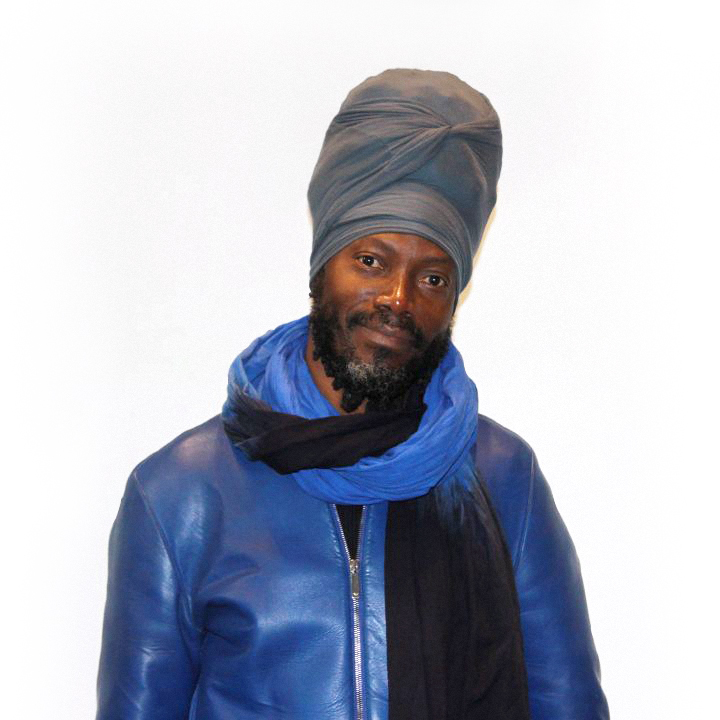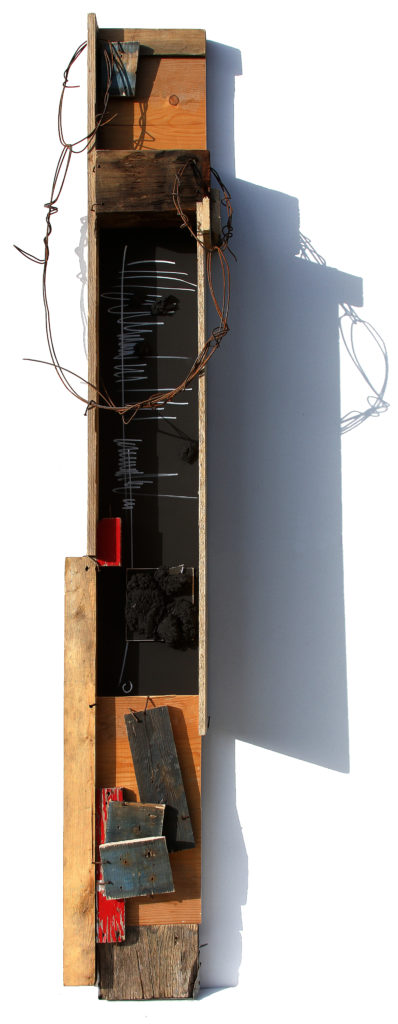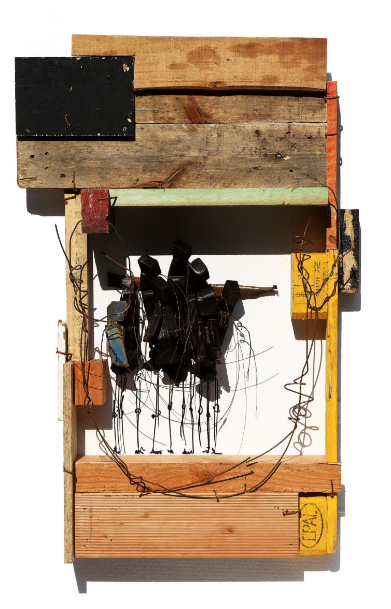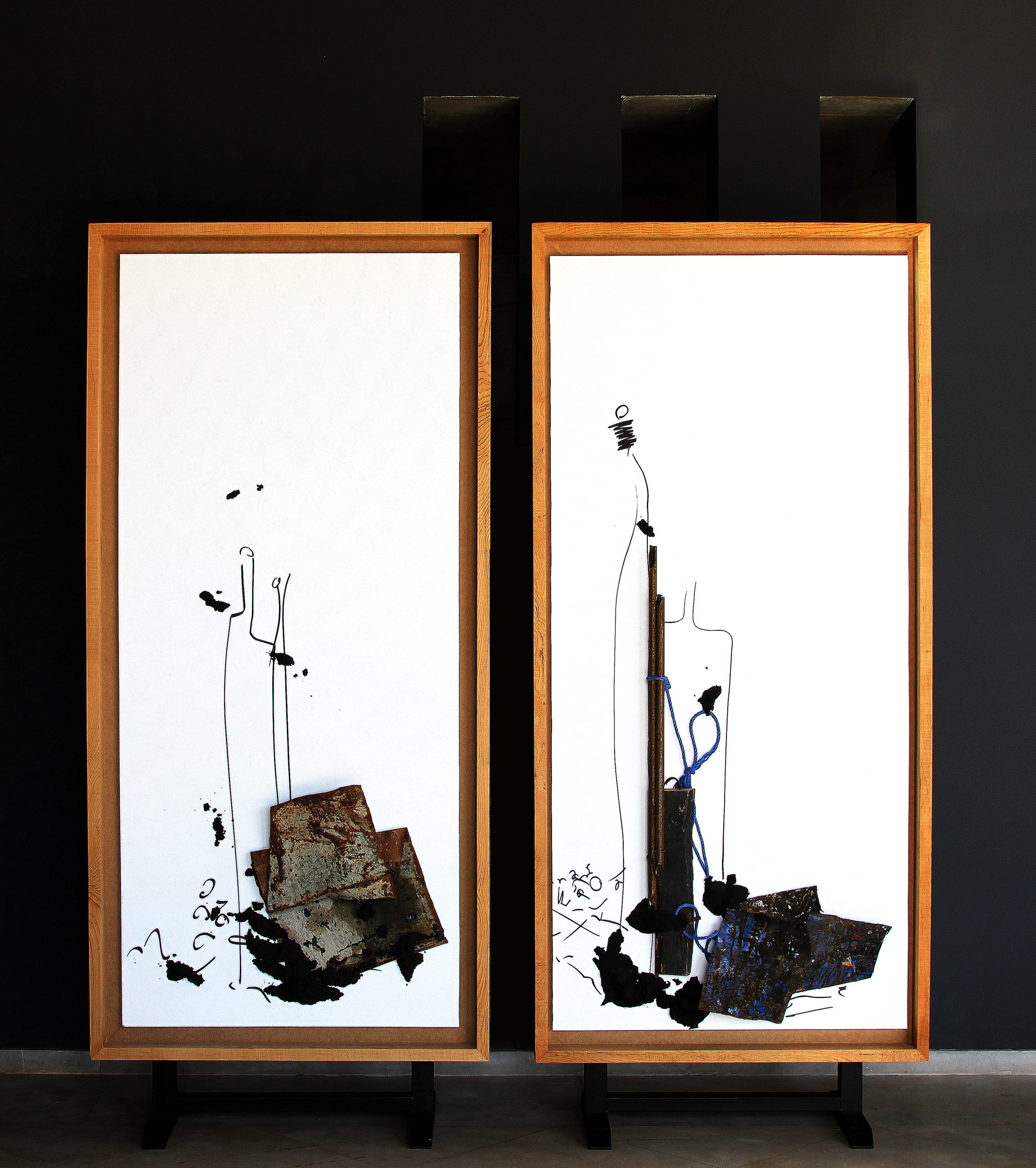Interview to the artist Joachim Silué
A pleasant chat, in collaboration with the Sulger-Buel Gallery in London, with Joachim Silué, an Ivorian artist who has been living in Italy for years where he is dedicating himself to his artistic production.
SpeakART: Dear Joachim, it is a pleasure to have you with us. We know that you were born in Abidjan, Ivory Coast but then you came to Italy to attend the Academy of Fine Arts in Bologna, today you live and work in Modena. What prompted you to make this decision to come and stay in Italy?
Joachim Silué: GWhen I was 13, I had already understood that my country wouldn’t give me the opportunity I was looking for. So the decision to leave it has been an obligatory choice to have a chance to realize myself.
SpeakART: What is the relationship with your native land?
Joachim Silué: At the beginning, I was very angry with my country. In a second moment, I found reconciliation and I understood better the different facets behind the anger I had felt. I deepened and I tried to concretize my thoughts, transforming them into my art so they could be tangible social cultural elements to be presented to the national and international public for an awareness of all the populations colonized by Western countries.

Joachim Silué
SpeakART: Your artworks represent the meeting between painting and sculpture: how did you arrive at this outcome?
Joachim Silué: It is a discovery that happens in my personal artistic research, between the combination of objects that I realized when I was a child and the drawing, that I loved to do despite my father’s absolute ban. He didn’t want me to feel the attraction that I felt for art. I started to experiment following my instinct, almost self-taught, reaching a synthesis between my conscious and my unconscious.
SpeakART: what do the materials you choose to create them represent for you (e.g. soil, wire, wood)?
Joachim Silué: The waste materials I use in my artworks represent people of our cities, for whom we have no consideration. So, wastes of the society.
Rich or poor, we will all be dust after death. This is one of the reason why I use soil. Iron wire is like barbed wire, a chain, an object that deprives from life and from freedom. However my use of materials should not be read in a symbolic way. My artistic practice is characterized by the creation of open universes, in which materials are connected between them, but in such a way as to reverse the ensemble of their traditional relationships. These new and ambitious worlds, which simultaneously reproduce the unraveling of death and the exuberance of life, feed on variety, because the different is a great opportunity and not a bad thing.

K3, composizione su mdf (terra, pigmento nero, punti, filo, legno, chiodi, cahouchouc e disegno), 2018
Courtesy: Joachim Silué
SpeakART: In your production, colors as black and white always return: does this choice have a meaning?
Joachim Silué: Yes, of course they do. Today the situation between the North and the South, the East and the West is or white or black. Or with or against. Europe does not accept to be a serial predator of African countries. Black and white shows the need to find shades.
SpeakART: What do you want to convey to those who have the opportunity to see your artworks?
Joachim Silué: Nothing should be discarded from our life because everything can reintegrate in our society creating new opportunities of cultural, social, political and economic progress.
SpeakART: Do you have a specific source of inspiration for your art?
Joachim: The essence of my art is to talk about thorny problems. Maybe they are not the most popular themes of everyday life, because I often think about the condition of poor people, sometimes homeless. Often this condition pushes some people to embrace the idea to leave the country for an unknown future, but sometimes the unknown is the only hope.

The Cross, Soil, Black pigment, wooden planks, iron, nails, drawing on mdf, 2019
Courtesy: Joachim Siluè
SpeakART: Your exhibition “Metamorphosis” at the Sulger-Buel Gallery in London has just ended: can you tell us something about it?
Joachim Silué: The exhibition has been extended until next week, then with the gallery director Mr Christian Buel we will try to take stock of the situation. From Giovanni’s feedback (Giovanni Agostinelli – Gallery Manager), the exhibition is going well and it is arousing a lot of interest. I know that the public is not used to this new way of painting realizing artworks that melts painting and sculpture.
SpeakART: You are one of the artist represented by the gallery: how did your collaboration start?
Joachim Silué: You see, our collaboration was born by chance in 2019 when in October I was in Brussels for an artist residency at Halls de Schaerbeek in the Municipality of Brussels. There I realized new monumental artworks for the opening of the exhibition that have aroused a lot of interest. In that occasion I met Mr Christian. And that meeting have established the foundation of our subsequent collaboration.

1-54 Fondation Montresso, Marrrakech, 2019
Courtesy: Joachim Silué
SpeakART: During Venice Biennale in 2017, you have been one of the five artists chosen to represent Ivory Coast: how was this experience for you? What did you want to communicate in that context?
Joachim Silué: It has been very beautiful but tiring, like all things of the highest level. I was very flattered and I felt a strong responsibility being a former immigrant who had to do any kind of work in Italy but who has kept alive the determination to make my dream come true. As an artist, finding myself at the Venice Biennale as a protagonist was a great thrill. It made me feel the weight and lightness of my path together.
My artistic production for the Biennale explored the contradiction I feel in the world with all its precariousness and with all the urgency to find a voice in the suffocating silence.

